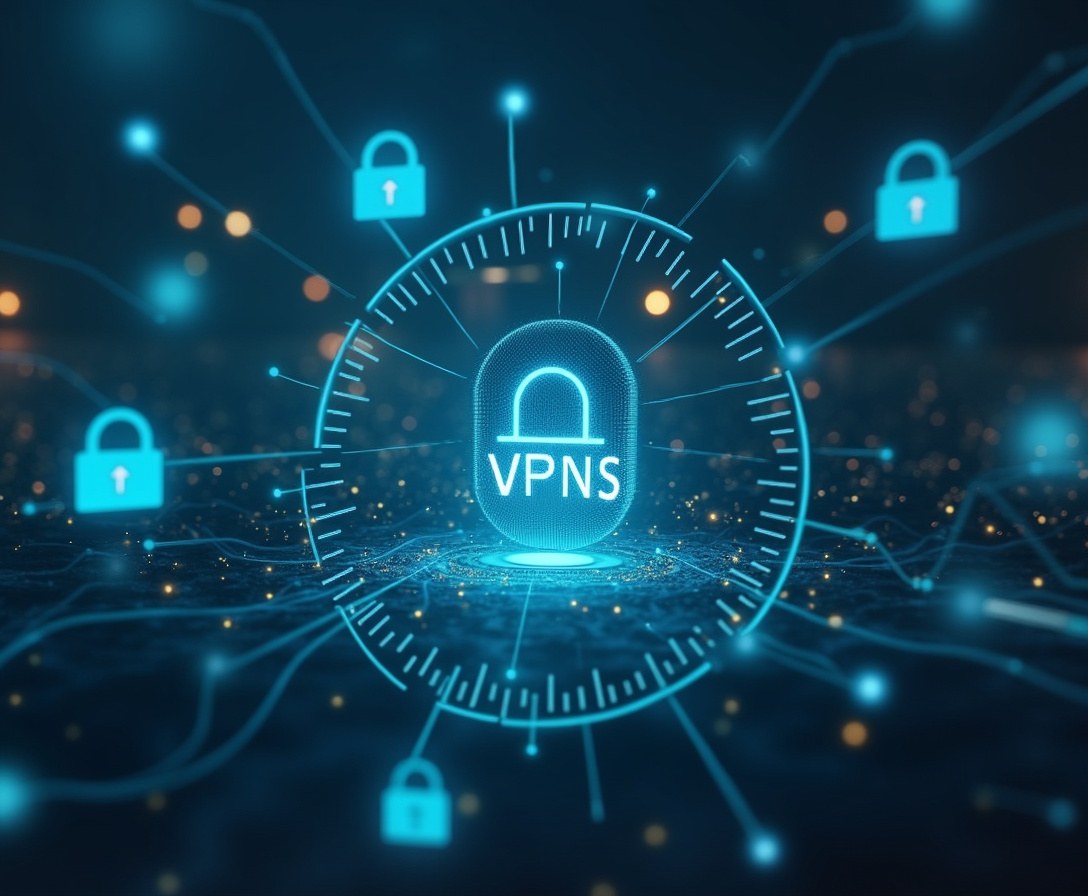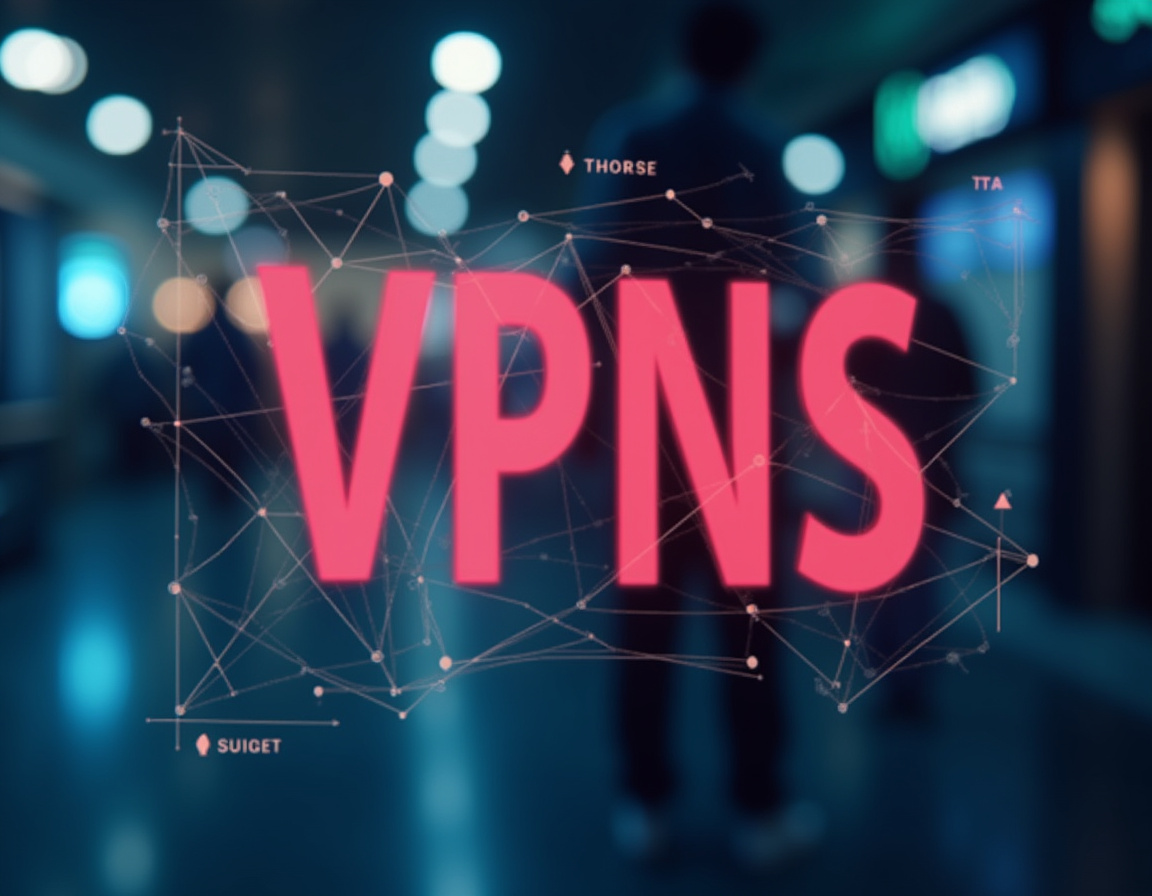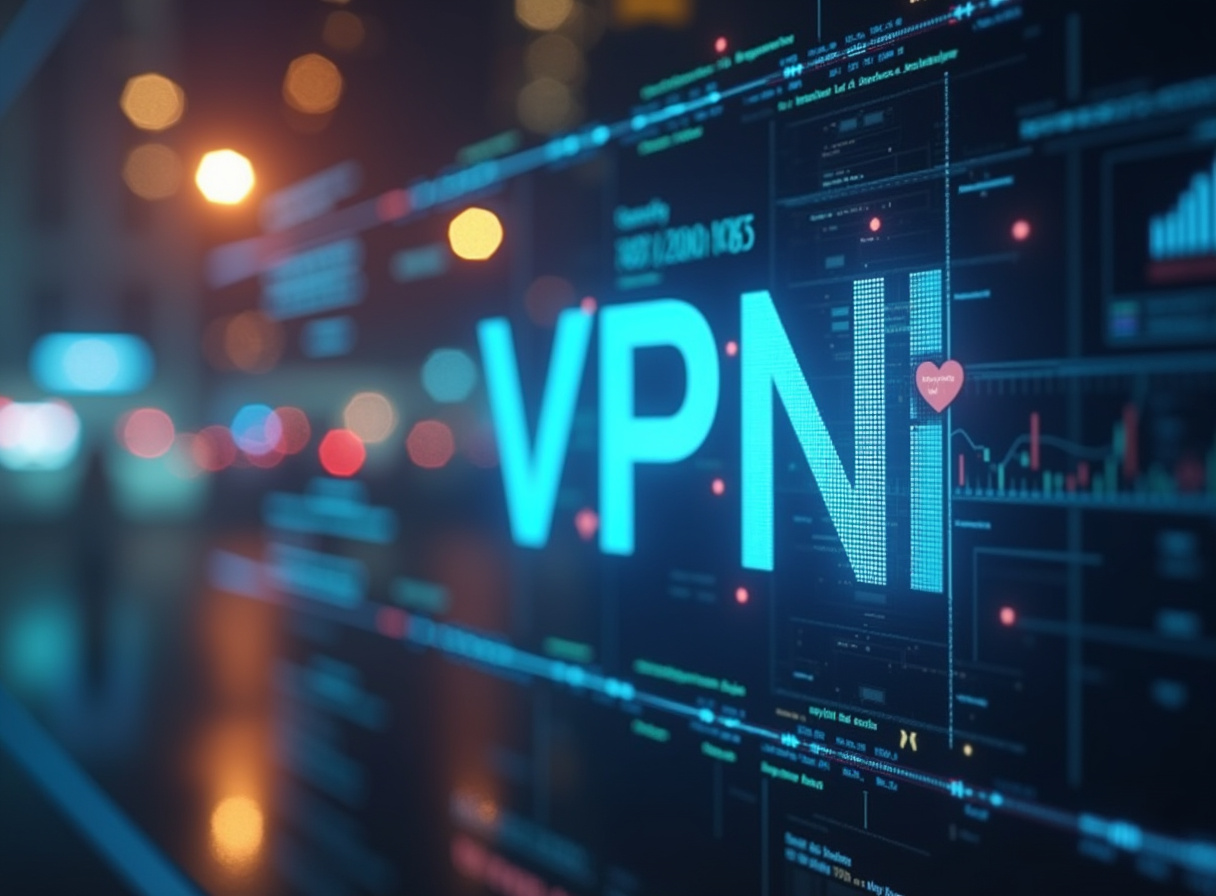VPNs for Home-Based Businesses: Protecting Commercial Data

Table of Contents
VPNs for Home-Based Businesses: Protecting Commercial Data
In the burgeoning landscape of modern entrepreneurship, the home-based business model has surged in popularity, offering unprecedented flexibility and autonomy. However, this convenience comes with its own set of unique challenges, particularly concerning data security and privacy. As home-based businesses increasingly rely on digital infrastructure to manage operations, communicate with clients, and store sensitive information, the need to safeguard commercial data becomes paramount.
This article delves into the critical role that Virtual Private Networks (VPNs) play in protecting home-based businesses from cyber threats, ensuring privacy, and maintaining operational integrity. We will explore how implementing a robust VPN solution is not just a technological safeguard but a strategic business imperative that directly impacts the survival, reputation, and prosperity of these ventures. The term '"home business VPN"' becomes synonymous with 'digital security blanket' in this context, acting as a shield against cyber threats and unauthorized access to sensitive information.
Choosing a VPN goes beyond the technical criteria. It is a strategic necessity for all-sized businesses. The primary challenge lies in identifying a VPN service that seamlessly integrates enterprise-grade security features with a cost-effective pricing structure, tailored for the often-constrained budgets of small businesses.
Selection criteria extend beyond mere functionality; entrepreneurs must meticulously evaluate factors such as the strength of encryption protocols, the breadth and security of server locations, the transparency and integrity of logging policies, and the incorporation of advanced countermeasures like a kill switch and DNS leak protection. Selecting the most suitable VPN is not merely a checklist of technical specifications; it's a pivotal business decision that can significantly impact the security posture and long-term viability of the business. The selected solution must seamlessly scale alongside the evolving business, accommodating growing data protection needs.
A home business VPN acts as a fortified digital gateway, meticulously encrypting all data – both transmitted and received – to shield against eavesdropping and the devastating consequences of data breaches. This is of paramount importance, especially when handling confidential client information, strategic financial records, or proprietary business strategies that form the core of the business's competitive advantage. A VPN masks the user's IP address, making it virtually impossible for cybercriminals to pinpoint their location and target them with sophisticated, location-specific malicious attacks.
In the sphere of '"commercial data security"', this anonymity is invaluable in deterring cyberattacks. It is an essential ingredient in the strategy of an ever vigilant, watchful approach to preserving the privacy of sensitive business communications. The VPN selection process requires a comprehensive assessment of its scalability.
As the home-based business expands, so will the demand for secure connectivity and robust data protection. Choosing a VPN that can seamlessly accommodate these increasing needs is essential for sustained operational efficiency and business continuity. Furthermore, entrepreneurs should explore whether VPN providers offer dedicated business solutions or custom plans designed specifically for home-based business requirements.
These plans often include advanced features such as multi-device support, dedicated servers optimized for performance, and priority customer support channels for rapid issue resolution. Beyond the technical aspects, the implementation of a home business VPN plays a crucial role in cultivating and maintaining customer trust. Clients and partners must have confidence that your home-based business is taking proactive measures to safeguard their data and ensure their privacy.
Transparently communicating your security practices, specifically highlighting how a VPN protects sensitive data through encryption, enhances trust and strengthens business relationships. A business can clearly display a dedication to data safety through VPN encryption notification. This assurance builds confidence, resulting in stronger client relationships, highlighting your reliability.
By meticulously evaluating the options and prioritizing comprehensive security features, ease of scalability, and a commitment to customer privacy, the adoption of a VPN transcends being a mere tactical necessity. The implementation elevates the home-based business, making it a strategic differentiator and positioning it favorably within a competitive market. It becomes a statement about your commitment to security, building trust and fostering long-term success.
With consumer trust and safety assured through a VPN, your business will be set to flourish.
Understanding VPN Technology: Core Functionality and Benefits for Home Businesses
The concept of '"company protection"' extends far beyond simply fortifying digital assets against external cyber threats; it also critically encompasses safeguarding internal communications, ensuring the integrity of business processes, and diligently managing the business's online reputation, all of which are inextricably linked to its long-term success. A well-implemented VPN solution plays a pivotal role in each of these critical areas, providing a multi-layered defense against a wide range of potential risks. One of the key aspects of company protection is establishing secure communication channels between employees, especially in the context of remote work arrangements that are increasingly common in home-based businesses.
A VPN enables encrypted communication, effectively preventing sensitive and proprietary information from falling into the wrong hands, whether through accidental leaks or malicious interception attempts. This is particularly essential when dealing with confidential projects, trade secrets, financial data, or any other information that gives the business a competitive edge in the marketplace. A VPN provides employees with a secure digital tunnel through which they can seamlessly access company resources, collaborate on projects, and communicate with one another without exposing sensitive information to the inherent risks of public networks.
Furthermore, a VPN can be instrumental in helping home-based businesses maintain a consistent online presence and proactively manage their online reputation. In today's hyper-connected world, a business's online reputation is a valuable asset that can significantly impact its ability to attract and retain customers. By masking their IP address, businesses can circumvent geographical restrictions and access content or services that may be unavailable in their specific location.
This capability is particularly useful for businesses that operate internationally or target customers in geographically diverse regions. By appearing to be located within the target market, these businesses can gain a competitive advantage by tailoring their marketing efforts, localizing content, and adapting their customer service strategies to resonate effectively with the local audience. Securing comprehensive company protection necessitates a thorough and ongoing understanding of the constantly evolving landscape of security risks.
Phishing scams, ransomware attacks, and malware infections are no longer hypothetical threats; they are daily realities that demand proactive countermeasures. While a VPN provides a crucial layer of security against these threats, it is only one component of a well-rounded defense strategy. Employees must also receive comprehensive and ongoing education about cybersecurity best practices.
Equipping employees with the knowledge and skills to recognize and avoid potential threats significantly reduces the risk of human error, which is often the weakest link in any security system. Cybersecurity education encompasses a wide range of topics, including creating strong and unique passwords, identifying phishing emails, recognizing social engineering tactics, and remaining vigilant about software updates and security patches. This holistic approach to company protection is essential for fostering a culture of security awareness and responsibility within the home-based business.
A security-conscious culture can make all the difference when repelling cyber attacks. Every employee should be active in preventing threats. Additionally, maintaining a VPN necessitates continuous updates and meticulous maintenance, ensuring that it is consistently equipped to effectively counter emerging threats.
Regular software updates are essential for patching security vulnerabilities and improving performance, while periodic configuration reviews help optimize the VPN settings to maximize its security posture. Proactive performance checks can identify potential bottlenecks and ensure that the VPN is operating at peak efficiency. Regular maintenance can mean an improved defense against dangers.
VPNs are even more effective when they are monitored regularly by professional security experts who can analyze VPN activity for suspicious behavior that may indicate a potential breach. These security experts can identify and respond to security issues rapidly. Protecting commercial data also involves creating a detailed and regularly updated plan for data recovery and business continuity in the event of a security incident or natural disaster.
Regular, secure data backups, both onsite and offsite, are essential for minimizing data loss and ensuring that the business can quickly recover from any disruption. A comprehensive disaster recovery plan should outline specific procedures for rapidly and effectively restoring critical company data and swiftly resuming business operations. Prioritizing the privacy of user data, encrypting sensitive information, and implementing robust access controls are all essential components of a comprehensive commercial data security strategy that protects the home-based business from a wide range of potential threats.
Key Security Threats Facing Home-Based Businesses: Why VPNs are Essential
'"Privacy assurance"' serves as a cornerstone for fostering trust, cultivating enduring relationships with customers, and establishing a solid reputation for the home-based business. In an era marked by escalating data breaches and heightened consumer awareness regarding data security, building a reputation for prioritizing privacy is not merely a matter of ethical compliance; it is a strategic imperative that directly impacts brand loyalty, customer acquisition, and long-term business success. By actively implementing a VPN, home-based businesses can unequivocally demonstrate their steadfast commitment to shielding customer data and upholding their privacy rights, effectively positioning themselves as trustworthy and responsible custodians of sensitive information.
A VPN works to encrypt all data that is transmitted to and from the user's devices, providing strong security against the threat of third-party interception of sensitive information. Encryption renders the data unreadable to unauthorized parties, protecting against the theft of access to passwords, financial details, and personal contact. By implementing a VPN, businesses will be able to offer customers a more reliable defense against identity theft, money scams, and additional cybersecurity risks.
Additionally, a VPN hides the user's IP address, offering another level of security against website trackers and those who would collect information about the user's individual browsing patterns. Anonymity is important in preserving privacy, making it difficult to engage in focused marketing strategies. '"VPN for entrepreneurs"' can offer many beneficial services.
Besides protecting sensitive and confidential data, encrypting communications, and protecting customer information, VPN services also enable access to geo-restricted content and let users conduct market research with different IP addresses. A VPN shows customers that your business is committed to safety, which improves customer confidence levels. Privacy assurance also requires complying with complex data privacy regulations and guidelines, like the General Data Protection Regulation, or GDPR, in Europe, or the California Consumer Privacy Act, CCPA, in the USA.
These laws regulate the collecting, processing, and storing of personal information. Complying requires businesses to take appropriate technical and organizational activities to protect personal data from being misused or unauthorized. Those technical steps can involve using encryption, access controls, and security measures to safeguard data.
Organizational measures can involve policies on data privacy, staff training, and robust procedures for responding to breaches in data security. Data minimization is another crucial part of demonstrating your dedication to privacy protection. Businesses simply get the personal details they require for running their activities.
By minimizing data collection and adhering to data privacy guidelines, businesses can build confidence and reduce risks of security breaches. Businesses are able to further gain the confidence and loyalty of their customers by being open about their data privacy policies. Make sure that customers can easily see what kinds of information you collect and use.
Apart from its security advantages, utilizing a VPN offers entrepreneurs the choice of utilizing geo-spoofing to undertake market research in various areas. VPN allows small-sized business users to get an idea of how their products or services will fare. Therefore, privacy assurance is a multilayered concept encompassing legal compliance, honest practices, and advanced technological solutions.
By carefully protecting customer data and adhering to data privacy laws, home-based companies will establish trust, earn customer loyalty, and establish a solid reputation for ethical behavior. The combination of transparency and responsibility will turn into a considerable competitive edge in the present data-driven environment. Showing customers and stakeholders that you strongly dedicate yourself to privacy will allow you to distinguish and excel.
In the age of constant cyber threats, a'"VPN for entrepreneurs"' has become a vital resource and component in an overall cybersecurity design, offering business owners and workers with secure network settings to protect sensitive data, safeguard business actions and encourage customer trust. By making use of a VPN, home-based businesses are able to create themselves as reliable, secure and security-conscious participants in the market, gaining lasting success. The correct VPN provides much-needed security and peace of mind for companies of any size.
Implementing a VPN Solution: Selecting the Right Protocol and Server Location
The selection and implementation of a '"home business VPN"' necessitates a strategic approach, moving beyond a simple feature comparison to a comprehensive evaluation of the unique needs and risk profile of the business. A one-size-fits-all solution simply won't suffice; the VPN must be carefully tailored to align with the specific operational requirements, data sensitivity levels, and long-term growth aspirations of the organization. This involves a meticulous assessment of various factors, ranging from the technological capabilities of the VPN to the trustworthiness and transparency of the VPN provider.
Firstly, the strength of the encryption protocols employed by the VPN is of paramount importance. Look for VPNs that utilize industry-standard encryption algorithms such as AES-256, which provides robust protection against unauthorized access to sensitive data. In addition to encryption strength, it's crucial to evaluate the VPN's support for various VPN protocols, such as OpenVPN, IKEv2/IPsec, and WireGuard.
Each protocol offers different trade-offs in terms of security, speed, and compatibility, so selecting the right protocol depends on the specific needs of the business. For example, OpenVPN is widely regarded as a secure and versatile protocol, while WireGuard offers enhanced speed and performance. Secondly, the geographic distribution and reliability of the VPN's server network are critical considerations.
A widely distributed server network allows businesses to connect to servers in different locations, providing flexibility for accessing geo-restricted content, conducting market research, and optimizing network performance. Furthermore, it's essential to ensure that the VPN provider maintains a reliable and well-maintained server infrastructure to minimize downtime and ensure consistent connectivity. Server reliability can be tested using online speed tests and uptime monitoring tools that track server performance over time.
Thirdly, carefully scrutinize the VPN provider's logging policies. A reputable VPN provider should adhere to a strict no-logs policy, meaning that they do not collect or store any information about users' online activities, including browsing history, IP addresses, and connection timestamps. A transparent and verifiable no-logs policy is essential for ensuring user privacy and preventing the VPN provider from becoming a potential source of data breaches or government surveillance.
Read the VPN service's privacy policy and carefully examine its data collection and use habits. Beyond these core technical considerations, it's equally important to assess the VPN provider's reputation, customer support, and pricing structure. Look for VPN providers with a proven track record of providing reliable service, responsive customer support, and transparent pricing.
Read online reviews and user testimonials to gain insights into the experiences of other businesses that have used the VPN service. Responsive and knowledgeable customer support is essential for resolving technical issues, answering questions, and providing guidance on VPN configuration and usage. Furthermore, carefully compare the pricing plans offered by different VPN providers to find a plan that fits within your budget and provides the features and bandwidth you need.
Finally, consider the ease of use and compatibility of the VPN client software. The VPN client should be user-friendly and compatible with the operating systems and devices used by your employees. A well-designed VPN client can simplify the process of connecting to the VPN, managing settings, and troubleshooting connection issues.
Consider offering staff training so that they are knowledgeable regarding the VPN’s use on the company-provided equipments. By taking a strategic approach to VPN selection and prioritizing security, reliability, and user-friendliness, home-based businesses can effectively protect their commercial data, maintain privacy, and ensure operational continuity. Integrating a '"company protection"' layer through a Home Business VPN to enhance security requires a strategic and well considered plan.
Begin by examining your home business’s unique threats and security requirements. What sort of information do you need to protect? What compliance needs must you satisfy?
By focusing on your particular vulnerabilities, you will be equipped to choose a VPN offering services that specifically tackle the potential threats. In light of your assessment, evaluate various VPN alternatives. Look into their security features, the amount of servers they have, their logging practices, and price.
Prioritize VPNs built to fulfill the requirements for business such as strong encryption protocols, multi-factor authorization and dedicated IP solutions. Ensure that the VPN provider supports the equipment and operating systems used by your home-based business.
Securing '"commercial data security"' with a '"VPN for entrepreneurs"' isn’t a one-time setup, but an ongoing process of monitoring, adaptation, and refinement. After implementing a VPN, continuously monitor its performance, evaluating connection speed, reliability, and security logs for unauthorized access attempts. Conduct frequent security audits to find and fix any potential vulnerabilities, and constantly stay current regarding emerging cyber security dangers.
This proactive stance is essential against potential threats. Employee training and awareness programs are also very important in this continuous process. Instruct personnel on the significance of utilizing the VPN whenever accessing company resources, especially on devices outside the home office network.
Educate personnel on the risks presented by phishing scams and malicious attachments, encouraging them to adhere to best practices for password security. Periodic training will help to keep cyber security procedures efficient and reduce the danger of internal violations. To ensure that the VPN properly aligns with the shifting needs of the company, schedule evaluations and updates on a consistent schedule.
As the home-based business grows, so too will the necessity for greater bandwidth, added server options, and sophisticated security capabilities. Update the VPN configuration regularly to optimize efficiency. Additionally, carefully evaluate new VPN technologies and enhancements to be sure the company is using leading-edge security options always.
Remaining agile and receptive to changes enables businesses to take care of prospective dangers efficiently and lessen any potential harm. Further, remember the significance of a good incident response plan for situations where a security event does occur, such as the event of a data breach. Establish clear processes to detect, contain, and resolve any possible incidents.
Be sure that personnel know that the process is important, so that they report security concerns immediately. Regularly check the effectiveness of the incident response procedure via simulated physical exercises. This enables the business to react quickly and lessen the effect of security breaches, thus reducing prospective harm to its finances and reputation.
To summarize, ensuring '"privacy assurance"' and '"company protection"' via a VPN is an ongoing focus calling not just technical options but in addition organizational and procedural modifications. Home-based enterprises can maintain ongoing vigilant activities to keep one step ahead of potential dangers, create reliance in their consumers, and achieve sustainable growth in a progressively interconnected and vulnerable digital world. Furthermore, bear in mind '"home business VPN"' isn’t only a tool; it’s a dynamic way to security, ensuring your company’s sustainability and providing a safe environment in which it could grow.
For '"commercial data security"' it is essential to stay ahead of security risks. It is advised that security measures be refined as the business grows. A VPN is a useful first step for safeguarding business data.
Continual observation, diligent compliance with regulations and workforce training must all be incorporated for optimum results. Every security protocol needs to be refined through periodic observations, data protection education, and updates to maintain the standards of defense. Small business users will then be at ease understanding that they are protecting their business from a broad range of internet dangers.
In the ever changing environment of cyber security, a '"VPN for entrepreneurs"' is definitely an important element, as it makes certain company endurance and creates credibility.
Stay Updated
Get the latest VPN news, tips, and exclusive deals to your inbox.




